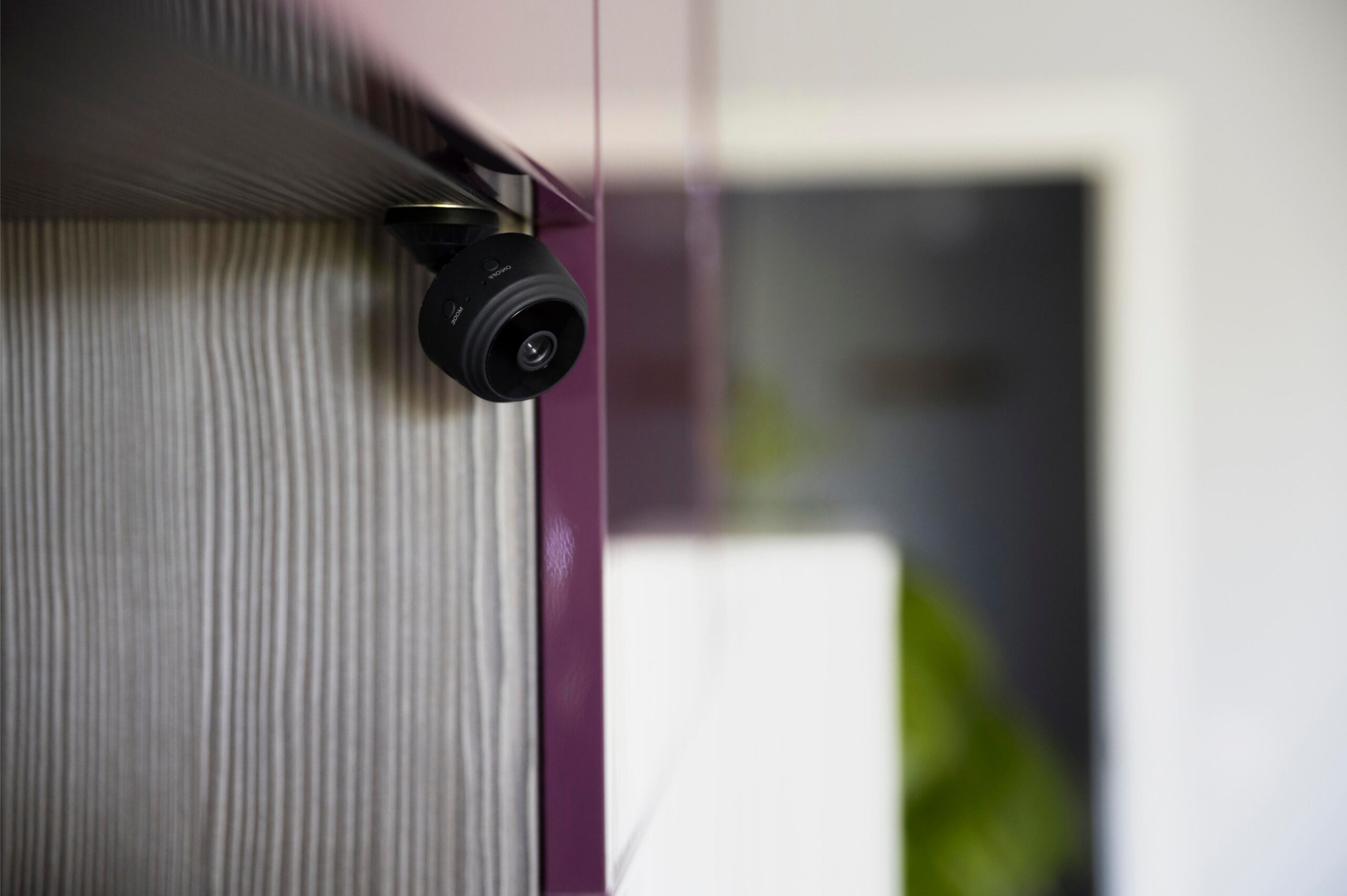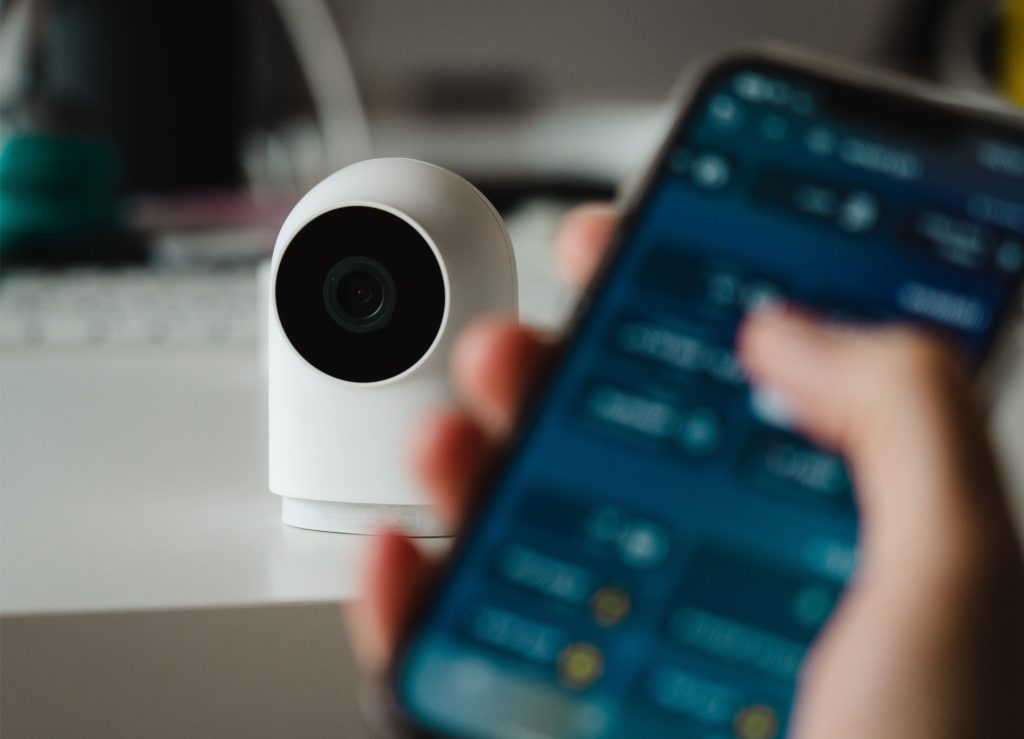Can Home Security Cameras Be Hacked? Here’s What You Should Know

Can home security cameras be hacked? Well, they can. In fact, studies show that about 15% of people have experienced some form of hacking with their security cameras. That’s a big number when you think about how many cameras are out there. It’s scary, right? Just think about it. You set up a camera to keep an eye on your property or your baby, and then someone else might be watching too. But don’t worry, there are ways to protect your security.
Key Takeaway
- Home security cameras can be hacked, but you can protect them.
- Using strong passwords is a must.
- Keeping software updated helps prevent hacking.
How Do Home Security Cameras Get Hacked?
Many people don’t know how easy it can be for hackers to break into their camera systems. Several common methods make it simple for them to gain access. First, many cameras come with default passwords. These are the passwords that come with the camera when a person buys it. They are often weak and easy to guess. Hackers know this and look for cameras with these defaults to sneak in.
Also, if the camera connects to a Wi-Fi network that doesn’t have strong security, it becomes an easy target. Using weak security is like leaving the front door wide open for anyone to stroll in. Poor security practices can make it simple for someone to hack a camera system.
Another way hackers can gain access is through remote access exploits. They can take advantage of software flaws or use stolen login credentials. Sometimes, people reuse passwords across different accounts. This habit makes it easier for hackers to get in. If a hacker gains access to one account, they might try the same password on the camera, too.
To transcend these vulnerabilities, a professional security solution like Shielded Residence orchestrates the installation of intricate systems designed to safeguard against common hacking methods, ensuring that your home security isn’t just functional but fortified.
Lastly, there are local network attacks. If a hacker is connected to the same local network as the camera, they can use tricks to take control. This situation is similar to someone sneaking in through a back door while a person is distracted. Keeping a camera secure means being aware of these risks and taking steps to avoid them(1).
Signs Your Camera May Be Hacked
A person might wonder how to tell if their security camera has been hacked. There are actually several signs to watch for that can indicate a problem(2).
- Weird Noises: If someone hears strange sounds or voices coming from the camera, it is a major red flag. It’s almost like someone is talking through a doorway that wasn’t meant to be opened. This strange behavior should not be ignored.
- Strange Movements: If the camera starts moving on its own, that is not normal. Cameras should only move when a person controls them. If the camera seems to have a mind of its own, it may be under someone else’s control.
- Camera Feeds Not Working: If a person suddenly cannot access their camera feed, this could mean someone has taken control. Losing access to the camera feed might feel alarming, especially if it was working fine just moments ago.
Recognizing these signs can help a person figure out if their camera security has been compromised. It is always better to be safe than sorry, and staying alert can prevent headaches down the road. Regular checks on the camera’s performance and settings can make a big difference in overall security.
Best Practices to Prevent Hacking

What can someone do to keep their camera from being hacked? There are several best practices that can be quite helpful.
- Change Your Default Passwords: Always change the passwords that come with the camera. These default passwords are often weak and easy to guess. Creating long and strong passwords is important. Think of it like putting a strong lock on your front door. A good password should have a mix of letters, numbers, and symbols. This makes it much harder for a hacker to break in.
- Regularly Update Software: Keeping the camera’s firmware up to date is another smart move. This process is like getting a flu shot for the camera. It helps protect against new viruses and bugs that hackers might use. Regular updates ensure that any security flaws are fixed as soon as possible. Many cameras can be set to update automatically, so there’s less hassle for the owner.
For those ready to embark on a journey to more secure living, Shielded Residence offers verdant resources and services, including expert advice on creating strong passwords and maintaining up-to-date firmware, to keep your security system resilient. - Secure Your Network: Using strong encryption for the Wi-Fi network is crucial. This means setting up the network to require a strong password and using protocols like WPA2. Only allowing trusted devices to connect is also vital. It’s like having a guest list for a party—only the people invited should get in. Keeping the network secure prevents unwanted guests from joining and accessing the camera.
- Turn Off Remote Access: If remote access is not needed, it is best to disable it. Many cameras come with remote viewing features that allow users to check in from anywhere. While this is convenient, it also opens a door for hackers. By turning off remote access, someone can limit the chances of someone sneaking in and viewing the camera feed.
By taking these steps, a person can help protect their camera and their home from unauthorized access.
Why Home Security Cameras Can Be Vulnerable
Home security cameras can often be vulnerable, especially the cheaper ones or those without strong security features. A surprising fact is that about 30% of camera hacks happen because of weak passwords. That’s a significant number! Many cameras come with factory-set passwords that are far too easy to guess. Hackers know this and look for these easy targets to exploit.
In addition, there are local network attacks that can occur. A hacker might trick someone into connecting to a bad network, which can allow them to see the camera feeds. This can happen if a person accidentally connects to a network that sounds familiar but is not theirs. When this happens, the hacker can intercept the data transmission from the camera.
Home security cameras can often be vulnerable, especially the cheaper ones or those without strong security features. A surprising fact is that about 30% of camera hacks happen because of weak passwords. That’s a significant number! Many cameras come with factory-set passwords that are far too easy to guess. Hackers know this and look for these easy targets to exploit.
In addition, there are local network attacks that can occur. A hacker might trick someone into connecting to a bad network, which can allow them to see the camera feeds. This can happen if a person accidentally connects to a network that sounds familiar but is not theirs. When this happens, the hacker can intercept the data transmission from the camera.
Being aware of these vulnerabilities can help a person take better care of their camera system. It’s important to remember that if a camera is compromised, it can lead to serious privacy issues. Taking proactive steps can greatly reduce these risks. Regularly checking security settings and being cautious about network connections can make a big difference.
Shielded Residence delves deep into addressing these vulnerabilities with a tapestry of solutions, including robust alarm systems and educational guides that help homeowners navigate the labyrinth of security risks.
Being aware of these vulnerabilities can help a person take better care of their camera system. It’s important to remember that if a camera is compromised, it can lead to serious privacy issues. Taking proactive steps can greatly reduce these risks. Regularly checking security settings and being cautious about network connections can make a big difference.
Conclusion
In the end, wrapping up this talk about home security cameras and their vulnerabilities is vital. Yes, home security cameras can be hacked, but knowing the signs and taking action can help protect your privacy. Remember to change those default passwords, keep your software updated, and secure your network. Your home security is important, and with the right steps, you can keep it safe from hackers.
With Shielded Residence, homeowners can transcend uncertainty, embarking on a path where their security is not only assured but captivatingly robust. Their commitment to safety weaves a kaleidoscopic blend of technology and expertise, leaving no stone unturned in creating a sanctuary.
FAQ
Why are wireless security cameras more vulnerable to hacks than wired security cameras?
Wireless cameras transmit data through wireless networks, making them more susceptible to remote hacking. Unlike wired security cameras that require physical access to intercept data flow, wireless cameras can be compromised through network traffic exploitation. Wired security systems generally provide more robust security against unauthorized access.
How do hackers typically gain access to home security cameras?
Hackers use various methods like weak passwords, brute force attacks, and credential stuffing to access your camera. They exploit default passwords, login credentials, and security vulnerabilities. Social engineering tactics can also trick homeowners into revealing their username and password combinations. Smart home devices connected to the same network may provide additional entry points.
What are the signs that your security camera has been hacked?
Watch for unusual LED light behavior, unexpected data transmission patterns, or strange camera movements. Check if your live video feeds seem delayed or if someone else can access your camera feed. Suspicious network traffic or finding your video doorbell footage on unauthorized platforms are red flags. Your security camera system might be compromised if you notice these signs.
What best practices should I follow to protect my security cameras from being hacked?
Use strong passwords and a password manager for all connected devices. Regularly update firmware and install software updates promptly. Create a separate network for your security equipment and enable two-factor authentication. Keep your alarm system and surveillance camera firmware current. Following security protocols helps prevent your security cameras from being hacked.
How can I secure my IP camera and live footage?
Change default settings, including the default username and password. Set up robust password protection and unique passwords for each device. Ensure your IP address isn’t publicly accessible. Implement antivirus software and maintain secure data transmission. These security features help keep an eye on your property while maintaining peace of mind.
References
- https://reolink.com/blog/how-to-tell-if-your-security-camera-has-been-hacked/
- https://www.bbc.com/news/technology-65975446